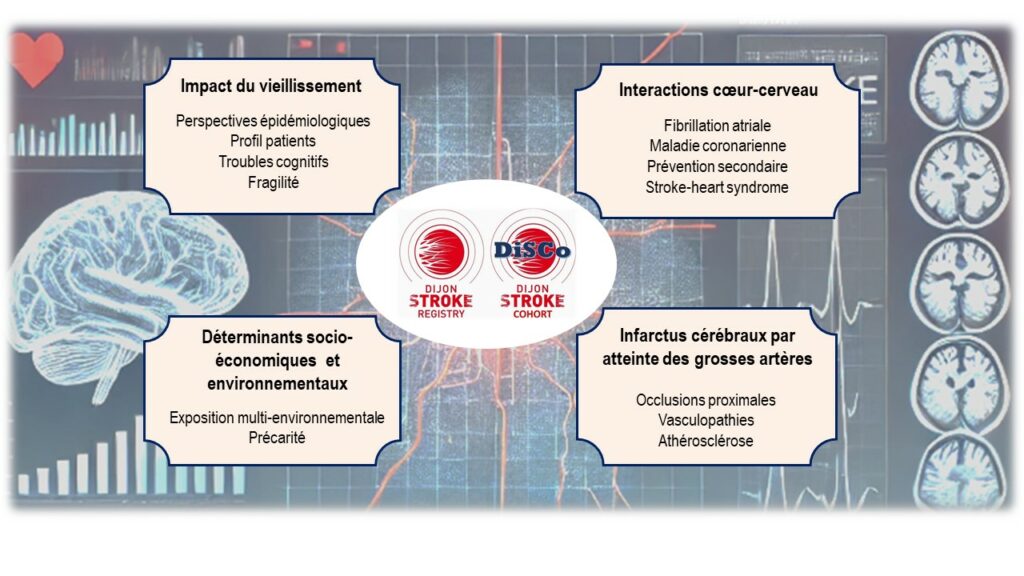The Dijon Stroke Registry is a pioneering initiative in France, dedicated to the continuous and comprehensive collection of data on strokes (including cerebral infarctions, intracerebral hemorrhages, and subarachnoid hemorrhages) and transient ischemic attacks (TIAs) occurring among the residents of the city of Dijon. Since its creation in 1985, this registry has operated without interruption, making it the oldest active population-based stroke registry in the world. It is endorsed by the Registry Evaluation Committee and benefits from the support of INSERM and Santé Publique France. Since 2021, patients included in the Dijon Stroke Registry have been followed epidemiologically as part of the DISCO (Dijon Stroke Cohort) cohort.

The main objectives of the research are as follows:
- Provide epidemiological data: Assess the incidence, mortality, and recurrence rates of strokes, and conduct international comparisons to understand the observed differences.
- Evaluate temporal trends: Analyze the impact of demographic changes, preventive measures, curative treatments, and medical practices on epidemiological data.
- Describe patient outcomes: Study functional evolution (disability and dependence), psychiatric and cognitive repercussions, as well as social consequences and quality of life after a stroke.
- Identify new risk factors: Investigate precipitating factors for stroke and evaluate the impact of preventive measures on disease incidence.
- Identify poor prognostic factors: Determine elements associated with unfavorable vital, functional, or cognitive prognosis, and develop prognostic scores for early identification of at-risk patients.
- Develop prognostic measurement tools: Create instruments tailored to stroke patients to facilitate their use in daily clinical practice.
- Develop new technologies: Improve patient follow-up and strengthen prevention through technological innovations.
- Generate physiopathological hypotheses: Based on observational data, encourage cross-disciplinary research in collaboration with experimental work conducted within the research team.
The scientific objectives and interests of the Dijon Stroke Registry are currently organized into four main priority areas (although not limited to these):
- Axis: “Impact of Aging on Strokes”
- Axis: “Heart-Brain Interactions”
- Axis: “Cerebral Infarctions Due to Large Artery Disease”
- Axis: “Socio-Economic and Environmental Determinants of Strokes”
The Dijon Stroke Registry actively collaborates with other registries and research centers, both nationally and internationally. These collaborations enable interregional and international comparisons, thereby enriching epidemiological analyses and contributing to a better global understanding of strokes. Over the past 40 years, more than 300 scientific articles have been published based on the work of the Dijon Stroke Registry.